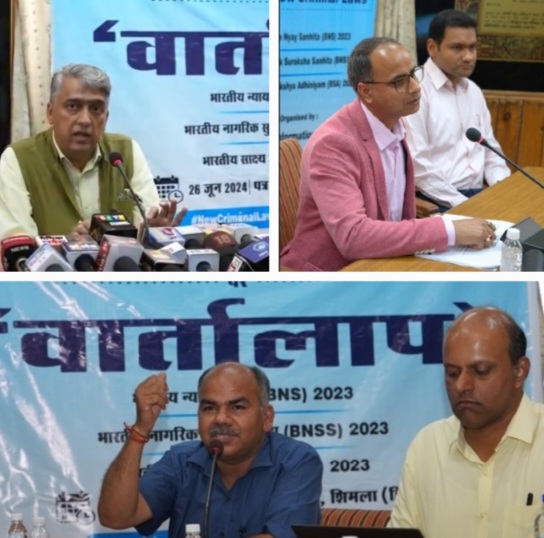Civil Society Groups Demands Parliamentary Debate on New Criminal Laws Before July 1 Deadline. Will It happen?
SHIMLA: Be ready Now. Any WhatsApp message will be considered as an evidence in Court. You can lodge an e-FIR. You will have to do community service and pay more fines for certain offences.
Like a chalan of your vehicles, you will get summon on your phones. Victims like women and children will have more rights and protection under the three new Criminal Laws...
As India braces for the implementation of three sweeping new criminal laws at midnight on July 1, 2024, civil society groups are urgently calling for an all-party debate in Parliament to scrutinize these changes.
The new laws—the Bharatiya Nagarik Suraksha Sanhita (BNSS), 2023, the Bharatiya Nyaya Sanhita (BNS), 2023, and the Bharatiya Sakshya Adhiniyam (BSA), 2023—are set to overhaul the criminal justice system, but concerns about their implications are mounting.
The major question remains, will the Modi government 3.0 accept a debate in Parliament as some civil society groups want.
Is Congress-led Opposition keen enough to take it to the Parliament. But so far it is not clear, though the deadline knocks at the door.
Privacy and Digital Evidence Concerns
One of the most debated aspects of the new laws is the expanded use of digital evidence.
This includes provisions where even a WhatsApp message could be admissible in court.
These aspects of the new laws came up at the workshop organised by the Press Information Bureau, in Shimla few days ago which brought law experts from National Law University, Shimla and top cops of Himachal Pradesh on board to highlight new laws.
Commandant Rohit Malpani (IPS)of the 1st HPAP Battalion Junga, speaking at the workshop said, “The formalization of e-FIRs and zero-FIRs eliminates grey areas and enhances justice delivery. Even WhatsApp messages will now count as evidence.”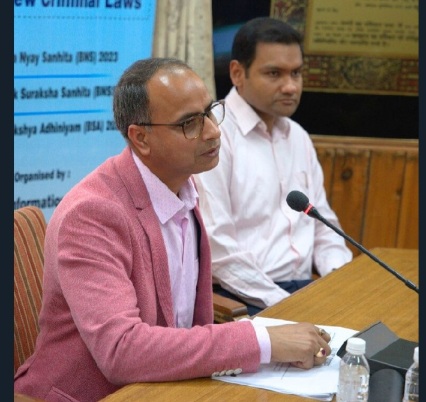
This provision aims to modernize evidence collection and make the justice system more efficient.
However, it has sparked significant privacy concerns, with critics arguing that such measures could lead to misuse and overreach.
Technological Integration
Additional Director General of Police, Law and Order, Abhishek Trivedi emphasized the role of technology in the new laws, stating:
“From midnight on July 1, all new cases will be handled under the new system. Extensive training for police and law enforcement is nearly complete, and provisions like e-FIRs and mandatory videography during seizures are set to enhance transparency and accountability.”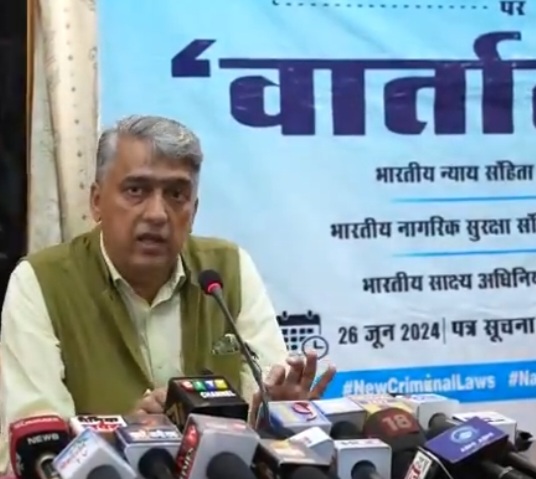
Trivedi highlighted that the new laws are designed to standardize procedures across the country and leverage technology to improve the efficiency and transparency of the criminal justice system.
Shift Towards Justice Over Punishment
Dr. Santosh Kumar Sharma from HP National Law University pointed out the philosophical shift embedded in the new laws, which aim to focus more on justice than punishment.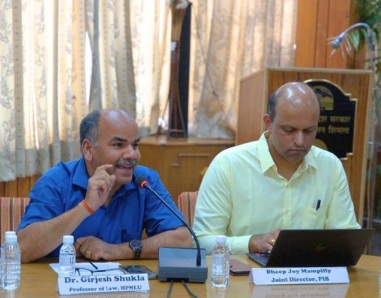
He said, “The focus is now on delivering justice for victims, accused, and society at large, not merely on punitive measures".
"The laws introduce community service as a form of punishment and increase fines and penalties for various offenses. Victims’ rights, particularly those of women and children, are more prominently supported.”
Sharma’s comments underscore a broader trend in the new laws to consider the needs and rights of victims more holistically, moving away from a purely punitive approach to one that includes restorative justice.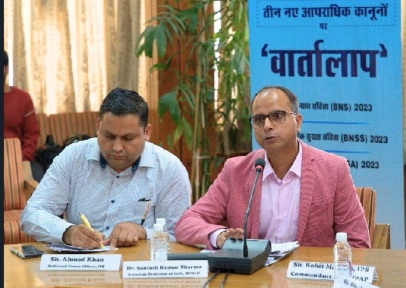
Streamlined Procedures
Professor (Dr.) Girjesh Shukla of HP National Law University elaborated on the procedural improvements in the BNSS, noting that:
“The BNSS addresses the chronic issue of procedural delays in justice delivery.
For serious offenses, forensic teams are now mandated to visit crime scenes, which should significantly bolster the quality of investigations.
Additionally, the new system allows for electronic serving of summons and warrants, streamlining court processes.”
Shukla emphasized that these changes are expected to make the judicial process more efficient and effective, reducing delays and enhancing the overall delivery of justice.
Calls for Debate and Petitions
Despite these touted advancements, groups like the People’s Union for Civil Liberties and Democratic Rights (PUCLD) and the Constitutional Group of retired civil servants are advocating for a delay in the laws' implementation.
They have written to President Droupadi Murmu and Prime Minister Narendra Modi, arguing for a thorough all-party debate in Parliament.
A PUCLD spokesperson articulated their concerns:
“We need a comprehensive review to clear doubts and fears about these laws. The public and Parliament must scrutinize them adequately to ensure they align with democratic norms and protect civil liberties.”
Adding to the urgency, several petitioners challenging the new laws argue that the laws were introduced without sufficient public or parliamentary scrutiny, raising concerns about potential infringements on privacy, freedom of expression, and the risk of misuse by law enforcement.
Broader Implications and the Need for Scrutiny
As July 1 approaches, the call for a pause and an inclusive debate intensifies, reflecting widespread concerns about the balance between reform and readiness in India's legal framework.
The fundamental democratic principle at stake is that significant legal changes must be carefully vetted and understood by those they will affect, ensuring that reforms do not come at the cost of civil liberties or democratic accountability.
These speakers, during the Vartalap event, elaborated on the operational aspects and anticipated benefits of the new laws, underscoring the significant shifts they bring to India's criminal justice system.
However, the urgent demands for debate and review underscore the critical need for broader public understanding and parliamentary oversight.
Comments and Join the debate.


